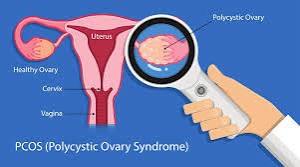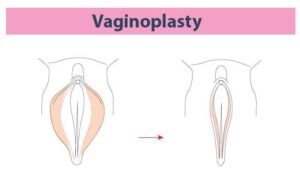Polycystic Ovary Syndrome (PCOS) is a common hormonal disorder that affects many women of reproductive age. It is characterized by hormonal imbalances, irregular menstrual periods, and the development of small cysts on the ovaries. Understanding the causes, symptoms, and treatment options for PCOS is essential for managing this condition effectively and improving overall health and fertility.
What is PCOS?
PCOS is a complex hormonal disorder that affects the ovaries, the reproductive organs that produce estrogen and progesterone—the hormones responsible for regulating the menstrual cycle. Women with PCOS typically have higher than normal levels of male hormones (androgens), which can interfere with normal ovarian function.
Causes of PCOS
The exact cause of PCOS is not fully understood, but several factors may contribute to its development:
- Hormonal Imbalance: Elevated levels of androgens disrupt the normal balance of hormones involved in menstruation and ovulation.
- Insulin Resistance: Insulin resistance, where the body’s cells do not respond effectively to insulin, leading to increased insulin levels in the blood, may be a contributing factor.
- Genetics: PCOS often runs in families, suggesting a genetic component to the disorder.
- Inflammation: Chronic inflammation may play a role in the development of PCOS symptoms.
Symptoms of PCOS
PCOS symptoms vary from woman to woman and can include:
- Irregular Menstrual Periods: Women with PCOS may have fewer than nine menstrual periods a year or prolonged menstrual cycles.
- Excess Androgen: Elevated levels of male hormones may result in symptoms such as acne, excessive hair growth (hirsutism) on the face and body, and male-pattern baldness.
- Polycystic Ovaries: Enlarged ovaries containing follicles that surround the eggs, often seen on ultrasound examinations.
- Insulin Resistance: Associated with obesity, difficulty losing weight, and increased risk of developing type 2 diabetes.
- Infertility: PCOS is a common cause of female infertility due to irregular ovulation or lack of ovulation.
Diagnosis of PCOS
Diagnosing PCOS involves:
- Medical History: Discussion of symptoms, menstrual history, and family history of PCOS or other hormonal disorders.
- Physical Examination: Including a pelvic exam to assess for signs of PCOS, such as enlarged ovaries or excess hair growth.
- Blood Tests: To measure hormone levels, including testosterone, androgen, and insulin levels.
- Ultrasound: Imaging test to examine the ovaries for cysts and evaluate their size and appearance.
Treatment Options for PCOS
Treatment for PCOS focuses on managing symptoms and addressing underlying hormonal imbalances. Treatment options may include:
- Lifestyle Changes:
- Healthy Diet: Low in refined carbohydrates and sugars, rich in fruits, vegetables, and lean proteins.
- Regular Exercise: Helps to improve insulin sensitivity and promote weight loss.
- Medications:
- Birth Control Pills: Regulate menstrual cycles, reduce androgen levels, and control symptoms such as acne and excess hair growth.
- Anti-androgen Medications: Help reduce excessive hair growth and acne by blocking the effects of male hormones.
- Metformin: Improves insulin sensitivity and may help regulate menstrual cycles in women with PCOS who have insulin resistance.
- Fertility Treatments:
- Ovulation Induction: Medications such as clomiphene citrate (Clomid) or letrozole to induce ovulation in women trying to conceive.
- In Vitro Fertilization (IVF): Assisted reproductive technology may be recommended for women who do not respond to other treatments.
- Surgery:
- Ovarian Drilling: Laparoscopic surgery to puncture the ovaries with a laser or needle to reduce androgen production and stimulate ovulation.
- Management of Specific Symptoms:
- Acne Treatment: Topical or oral medications to reduce acne breakouts.
- Hair Removal: Methods such as laser hair removal or electrolysis for unwanted hair growth.
Consult Dr. Aneeta Talwar for the Best Treatment in Bangalore
For women living with PCOS, seeking specialized care is essential for effective management and improving overall health and fertility. Dr. Aneeta Talwar in Bangalore offers expert gynecological services, including comprehensive evaluations, personalized treatment plans, and compassionate care for women with PCOS.
Why Choose Dr. Aneeta Talwar?
- Expertise and Experience: Dr. Aneeta Talwar is a highly regarded gynecologist with extensive experience in diagnosing and treating PCOS.
- Advanced Diagnostic Tools: State-of-the-art facilities for accurate assessments and evaluations.
- Personalized Care: Tailored treatment plans to address individual symptoms and optimize health outcomes.
- Comprehensive Support: From diagnosis through long-term management, Dr. Aneeta Talwar provides comprehensive support and guidance to women with PCOS.
Conclusion
PCOS is a common hormonal disorder that can have a significant impact on a woman’s health and fertility. By understanding the causes, symptoms, and treatment options for PCOS, women can take proactive steps towards managing their condition effectively and improving their quality of life. Consult with Dr. Aneeta Talwar in Bangalore to receive expert care and personalized treatment for PCOS, ensuring comprehensive support for your health and well-being.





